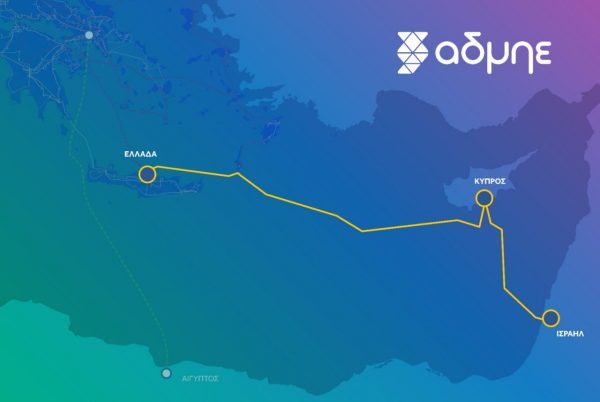Athens awaits the much anticipated response from the Cypriot government regarding the Great Sea Interconnector project, which involves a power cable linking the grids of Greece, Cyprus and Israel, paving the way for the energy interconnection of the three countries, this week.
Cyprus’ decision will regard an agreement draft that was finalized on September 10 during a meeting chaired by Cypriot President Nikos Christodoulides. The meeting included the participation of Greek Minister Theodoros Skylakakis, along with representatives from Independent Power Transmission Operator (ADMIE) and the French constructing company Nexans.
The Cypriot cabinet is set to decide on the agreement tomorrow, with President Christodoulides expected to convey the positive decision to Greek Prime Minister Kyriakos Mitsotakis during his visit to Athens on Thursday, September 19.
The three key points of the agreement are:
1. ADMIE’s Revenue Recovery: ADMIE is to recover 125 million euros during the construction period, instead of the initially proposed 200 million euros. The Cypriot government argues that part of this cost will be covered through emissions revenue, with the remaining eligible ADMIE revenue being capitalized and recovered once the electrical interconnection becomes operational.
2. Cyprus Becomes a Stakeholder: Currently, ADMIE is the sole stakeholder responsible for the project’s implementation. Under the new agreement, Cyprus will enter the shareholding structure of the Great Sea Interconnector with a 100 million euros contribution.
3. Increased Greek Geopolitical Guarantee: Greece is expected to increase its share of the geopolitical guarantee for the project’s security. The balance between the two countries is expected to shift to a 50-50 split, with Greece enhancing its commitment to the project’s security.
Provided the Cypriot government ratifies the agreement it will signify a crucial step forward in the realization of the Greece-Cyprus-Israel electrical interconnection, a major infrastructure project with both energy and geopolitical significance in the region.




